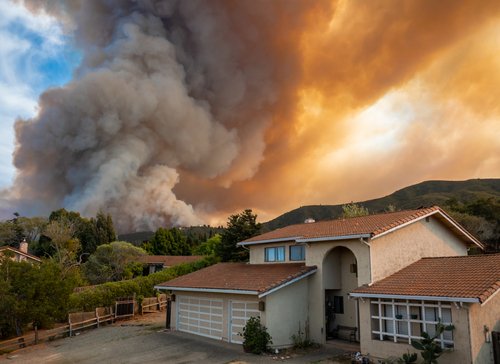How Fires Can Affect your Voice
How smoke from fires and air pollution affect your voice
When wildfires take over Southern California, the team at Center for Vocal Health sees a significantly higher incidence of voice complaints. And as wildfire season burns longer and hotter, and affects more areas, this is only expected to increase.
Those who rely on their voices for a living are the most diligent about caring for their voices.
But when the air itself is the problem, what can a singer and actor do?
Below is an example of a professional voice user. Within a few days of the fires starting, despite taking care to rest and hydrate, this patient noted difficulty with mixed voice above a B4, which is well below her normal.
The vocal cords appear inflamed, with thick mucous, more vascularity, and a heavier, less supple vibration.
Symptoms:
Smoke of any kind will cause similar findings. This includes vaping, cigarette smoke, and even air pollution. Symptoms of voice changes related to smoke exposure include:
loss of vocal range
increased mucous production
hoarseness
voice fatigue
difficulty in head voice and mixed voice
easy loss of voice (after shorter periods of use)
Vocal Health tips:
Nasal irrigation and nasal sprays - These can make a big difference in vocal health. Because the smoke is inhaled and processed by our noses, this is the source of a lot of irritation and mucous production. Though some patients cannot tolerate sinus irrigation, for those who can, this can be a highly effective way to limit the need for medication.
Voice rest is also critical when the voice is swollen. Canceling voice work is rarely needed, but an evaluation including stroboscopy can help determine how severe the inflammation is, what needs to be done urgently, and how safe it is to perform. Resting the voice is always a smart idea.
Hydration is effective at thinning out mucous and is a good general vocal health tip, even without smoke exposure.
HEPA filters are highly effective to limit particulate in the air and should be considered, especially if you are in an area that is exposed to smoke annually.
Your laryngologist may also recommend medications depending on what they see during your stroboscopy.
If you aren’t able to check in immediately, it’s a good idea to keep tabs on your voice. Assess carefully for changes in your voice (loss of range, raspiness) – if these occur, get checked as soon as possible.
The sooner you are evaluated, the less likely you are to be injured while working on a swollen instrument. A quick and painless stroboscopy can provide the information you need to protect yourself, when performed by a laryngologist with expertise in the care of the voice.
Contact us for a customized, detailed voice evaluation and treatment plan
Interested in working with the best professionals in LA for voice care and rehabilitation?
Meet Dr. Gupta, the top voice doctor in LA, and Tressa Cox, the leading voice therapist specializing in voice rehabilitation.
Learn more about their expertise and services at the Center for Vocal Health.



